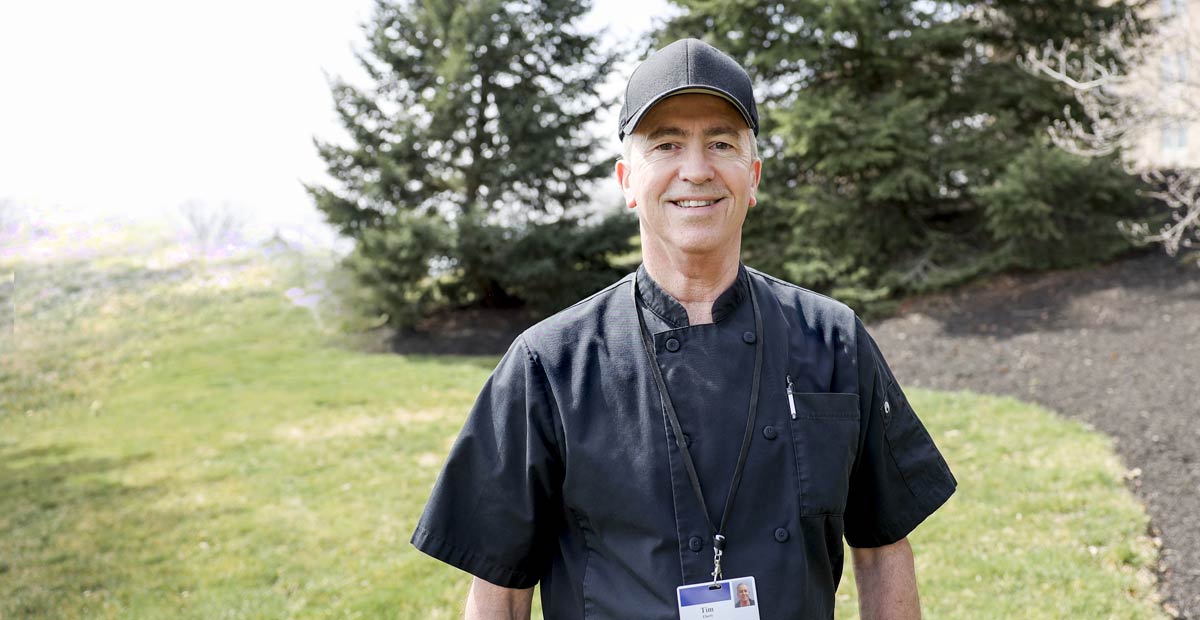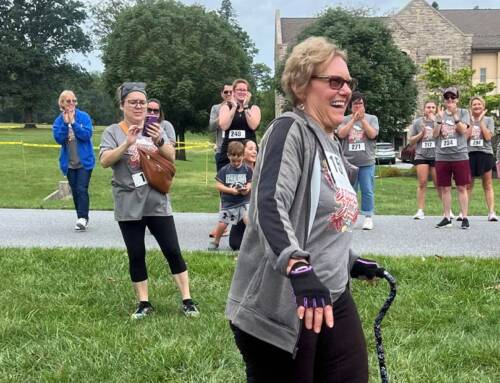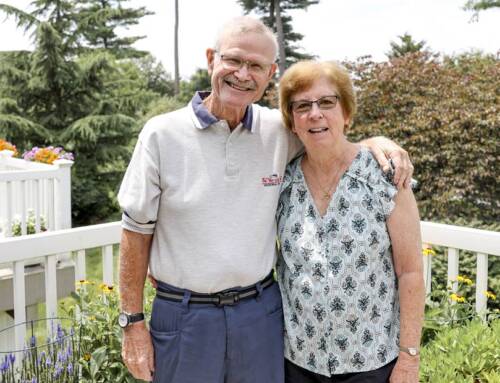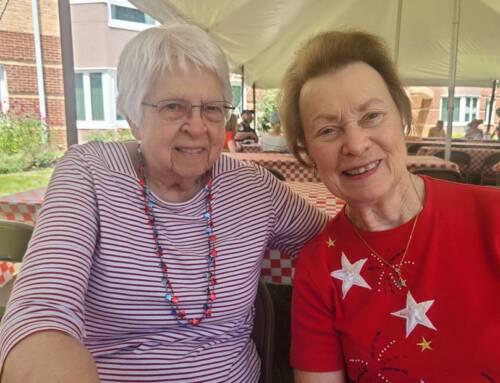Wherever he worked on campus, Tim Eberly’s mission was always the same: to help make residents’ days brighter with a good meal.
After 45 years, Tim, a cook in the Culinary Arts Center, is hanging up his apron on May 1, but Masonic Village will always hold a special place in his heart.
Tim grew up in Elizabethtown about a mile from Masonic Village. He and his friends rode bikes through the campus, and he picked cherries here as a teenager. After graduating high school, he worked for Weis Markets and was an active volunteer with the fire company, where he met a friend who worked at Masonic Village’s abattoir. Tim decided he wanted to become a butcher, and his first day at Masonic Village was Jan. 2, 1980.
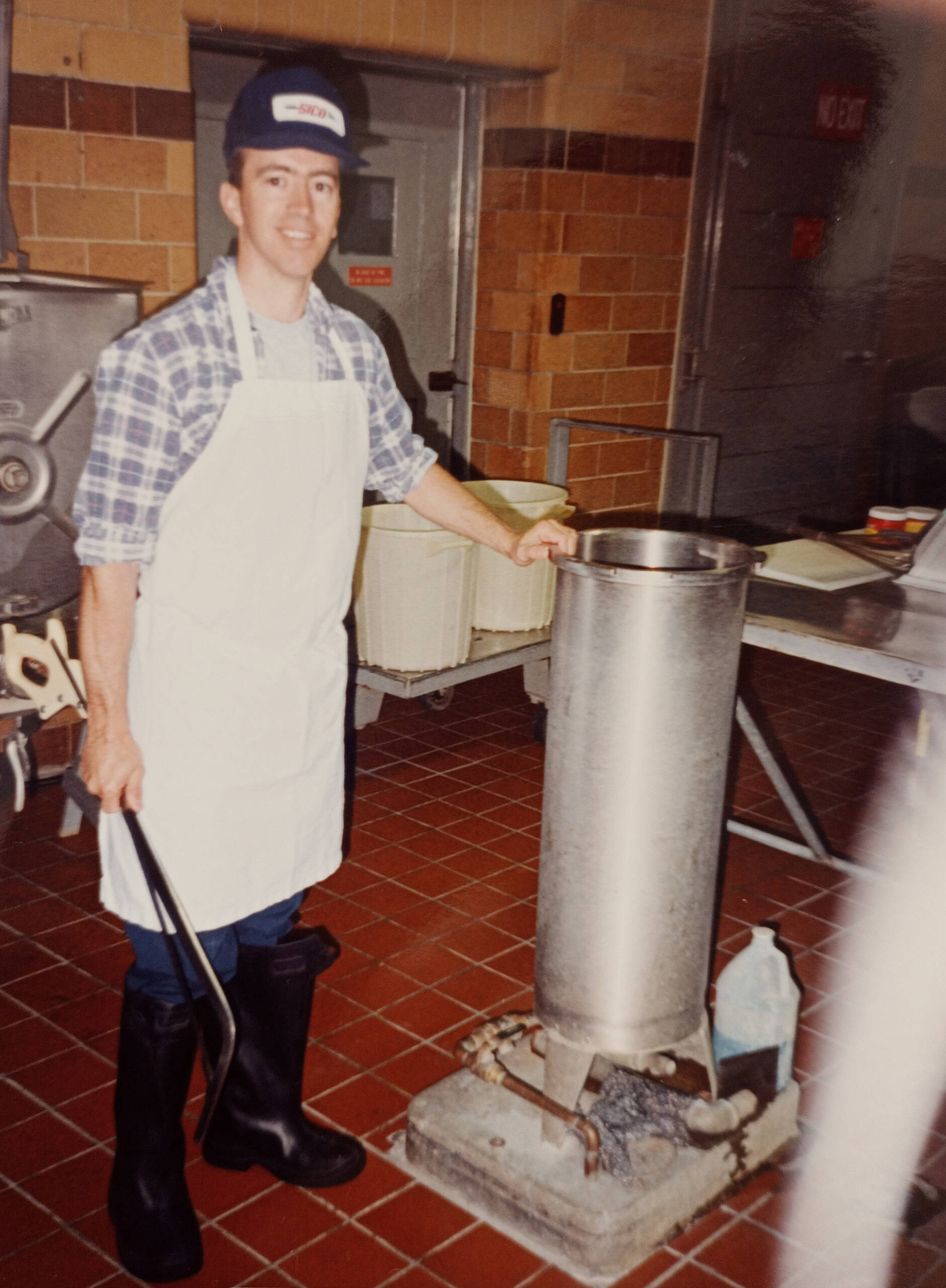
Tim making sausage in the abattoir
The abattoir was a meat processing and storage facility responsible for turning the beef, chicken and pigs raised on campus into products to feed residents, including sausage and meat loaf. It was closed in 1995, and the building, named the King Memorial, was later torn down. A plaque and the building’s datestone, cornerstone, surrounding stones and weathervane can be found at the recreation area along Umbaugh Drive.
Tim was the last person to work in the abattoir. When it was closed, he moved to the Grand Lodge Hall kitchen and was trained as a cook’s helper. In 2001, he transferred to the Culinary Arts Center (CAC), which is responsible for the conventional cooking of meats, omelets, vegetables, soups, casseroles, meat loaf, ham loaf and more, which are then distributed to campus restaurants and the Masonic Health Care Center. The CAC staff supply more than 3,500 meals every day.
Through each transition, Tim wasn’t sure if he’d stay with Masonic Village, but as his sons, Jordan and Devin, were born and then needed day care (which was available on campus), it worked well for him and his wife, Beth.
“I’m so glad I stayed,” Tim said. “I’ve made a lot of friendships and met a lot of people.”
The biggest change Tim observed on campus was the addition of retirement living apartments and cottages in 1990. At that time, all the food was prepared in Grand Lodge Hall and transported around campus in hot trucks. With more residents, food production went up and eventually transferred to the cook/chill operation used today.
“The quality of food is better,” Tim said. “It’s quite an operation with state-of-the-art equipment. I’ve toured other retirement communities, but I’ve always been impressed with what we do. It’s second to none, and we have great staff here.”
The best part of his job has been cooking nutritious food for residents. He also enjoyed taste testing new recipes, although it’s hard to top his all-time favorite: mac n’ cheese.
While he didn’t interact with residents on a regular basis, Tim often thought of them eating their meals as a highlight of their day.
“I’m proud I played a role in making their day,” Tim said. “I hope they enjoy everything we do.”
His mother resided at Masonic Village for four years, and he’d visit her and admire his fellow employees from the perspective of a guest.
“Seeing them work – therapists, housekeepers, nurses and others – really brought home the Mission of Love for me,” he said. “I tell everybody who works here, we all have our bad days, but remember why we’re here: for our residents.”
With his newfound free time in retirement, Tim plans to visit his granddaughters, Harper and Carleigh, in Virginia, travel to Jamaica and Dominican Republic and take a river boat cruise, all alongside his wife of 38 years. You’ll even see him back at Masonic Village when he returns part-time.
“Over the past 45 years, I’ve had the pleasure of watching this campus grow into the nationally recognized retirement community it is today,” he said. “It has been a great honor to be a part of this accomplishment. Masonic Village has been good to me. I may be here on the receiving end one day as a resident enjoying the meals.”

